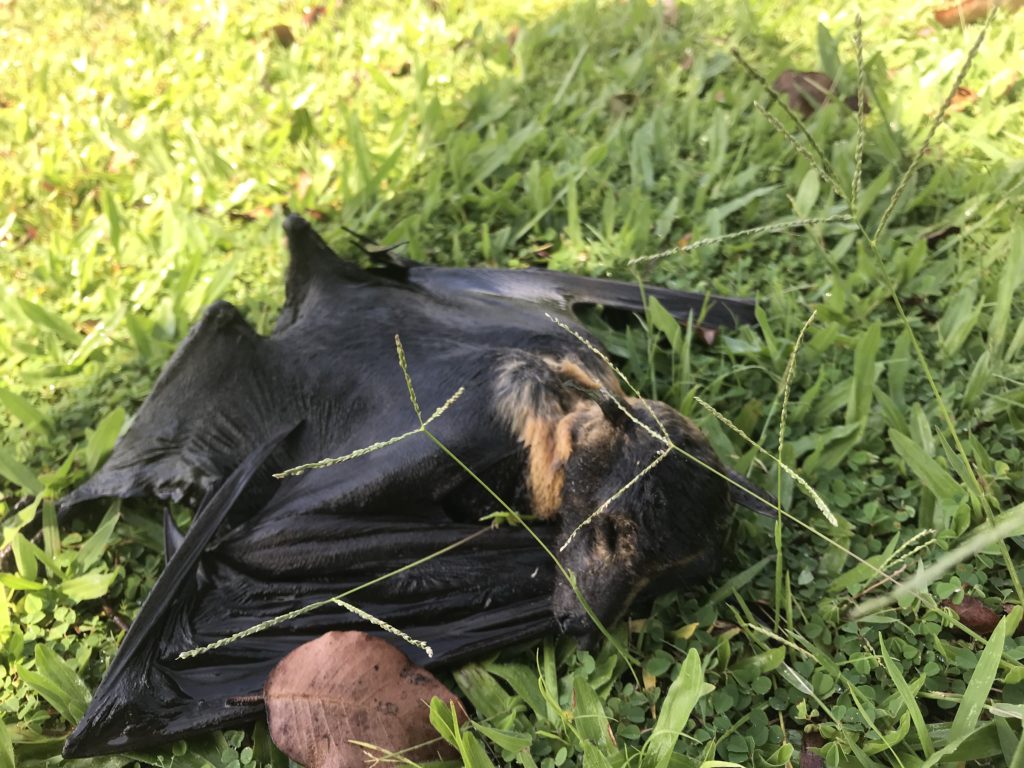Secrecy surrounds government’s bat review

A dead bat in Ingham’s Botantical during last year’s heatwave in North Queensland.
A KEY government committee has refused to shine a light on the State Labor Government’s secretive review into their flying fox management framework, despite a direct request from Hinchinbrook MP Nick Dametto.
In a letter to Mr Dametto late last week, Innovation, Tourism Development and Environment Committee chair and Member for Stretton Duncan Pegg refused the request for the committee to hold an inquiry and public hearings into the government’s review of the framework, citing the existing powers available to councils to move bats on and that approved amendments to the codes of practice would be made by December.
But Mr Dametto slammed the committee’s decision, saying that individuals and community organisations who had to put up with bat colonies in towns like Ingham, Charters Towers and Mt Isa “had a right to be heard”.
“I appreciate the Department of Environment and Science has been consulting with council representatives, the CSIRO and other stakeholders, but the fact of the matter is this is a public health issue and the government should be more transparent,” he said.
“Residents in Ingham are fed up with the colony at the Botanical Gardens, which is close to Ingham State School, Our Lady of Lourdes Catholic Primary School and Hinchinbrook Aquatic Centre. We know flying foxes have the capacity to carry Australian bat lyssavirus and I fear for the safety of our school children while this colony remains in the town.”
The current State Government Code of Practice governing the “Ecologically sustainable management of flying-fox roosts” permits councils to destroy a flying fox roost, drive away or attempt to drive away a flying fox from a roost and disturb a flying fox in a roost – all of which are restricted to non-lethal deterrence methods.
The Code also states that no roost tree “may be destroyed or modified when there are flying-foxes in the tree, or when flying-foxes are near the tree and likely to be harmed as a result of the destruction or modification”.
“The Department needs to look at more invasive and proven methods of flying fox dispersal that will enable these animals to be permanently moved away from populated town centres,” Mr Dametto said.
“Suggestions that have been put to me by residents include using a drone equipped with a speaker to scare and muster the roost away to an unpopulated location, establishing birds of prey nests in the area and even unleashing green ants to get flying foxes out of the trees.”
Mr Dametto said public hearings would have been better able to inform those reviewing the management framework by allowing those who live with bats daily to give their “lived experience”.
“You can consult all the experts in the world on policies like this but I’ve always believed those on the ground have the best common-sense solutions,” he said.
“It is disappointing that won’t be happening and I await to see what amendments are made to the relevant codes of practice in December following the review.”
Mr Dametto sent his own submission regarding the framework review to Environment Minister Leeanne Enoch late last week.





